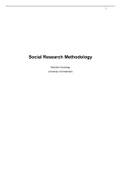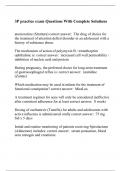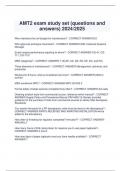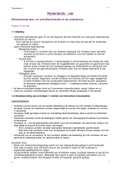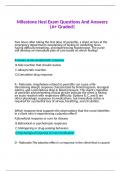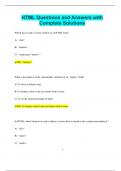Summary
Summary Social Research Methodology (Y) UvA
- Course
- Institution
- Book
A complete summary of the course Social Research Methods (Y) for the study of Sociology at the UvA. It includes the specified chapters from Bryman's Social Research Methods, one article and all lectures. A table of contents at the front makes the 100-page file manageable.
[Show more]
